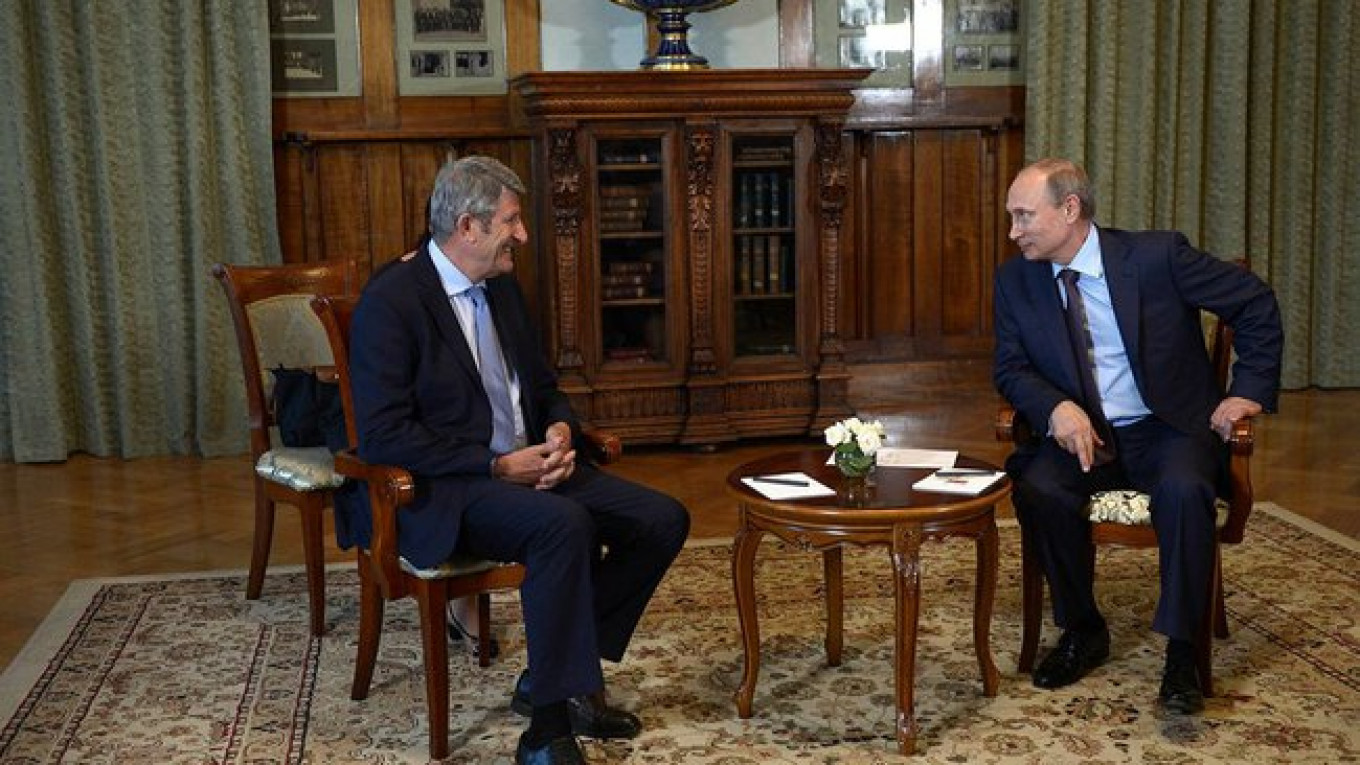Russian President Vladimir Putin has signed off on plans for French businessman and politician Philippe de Villiers to build historically themed amusement parks in Moscow and on the Crimean peninsula, a news report said Thursday.
De Villiers, who heads the eurosceptic Movement for France party, met Putin in the Crimean city of Yalta, the Interfax news agency reported.
The duo did not elaborate on the details of the park in Crimea, which was annexed by Russia from Ukraine in March and boasts a rich and colorful history.
Over the past 2,500 years, Crimea has housed ancient Greek colonies, Scythian tribes and a Tatar Khanate before being conquered by Russian Empress Catherine the Great in the 18th century.
The French, in alliance with Britain and Turkey, delivered a humiliating defeat to Russia in the Crimean War of 1853-1856. A century later, the region was the site of several bloody battles during World War II.
The park in Moscow will be dedicated to the Great Patriotic War of 1812, in which Russia destroyed the army of French Emperor Napoleon I.
While it would seem an unusual event for a French politician to want to celebrate, French developers will "listen carefully" to their Russian historical advisors during the construction, de Villiers was quoted as saying by Interfax.
The project flies in the face of the economic sanctions imposed by the European Union against Russia over its annexation of Crimea and alleged support of a bloody pro-Russian insurgency in eastern Ukraine.
"I testify that the French and the Europeans want to and will invest in Russia," de Villiers was quoted as saying by Interfax.
De Villiers, 65, has experience in amusement-park construction. His historically themed Puy du Fou in western France is among France's top tourist attractions, with 1.5 million visitors a year.
But he is perhaps better known for political activities: The European Parliament member is an outspoken eurosceptic and has campaigned against the so-called "Islamization of France."
De Villiers, a scion of an aristocratic family, also received 2.2 percent of the vote in the 2007 French presidential election.
See also:
A Message from The Moscow Times:
Dear readers,
We are facing unprecedented challenges. Russia's Prosecutor General's Office has designated The Moscow Times as an "undesirable" organization, criminalizing our work and putting our staff at risk of prosecution. This follows our earlier unjust labeling as a "foreign agent."
These actions are direct attempts to silence independent journalism in Russia. The authorities claim our work "discredits the decisions of the Russian leadership." We see things differently: we strive to provide accurate, unbiased reporting on Russia.
We, the journalists of The Moscow Times, refuse to be silenced. But to continue our work, we need your help.
Your support, no matter how small, makes a world of difference. If you can, please support us monthly starting from just $2. It's quick to set up, and every contribution makes a significant impact.
By supporting The Moscow Times, you're defending open, independent journalism in the face of repression. Thank you for standing with us.
Remind me later.






